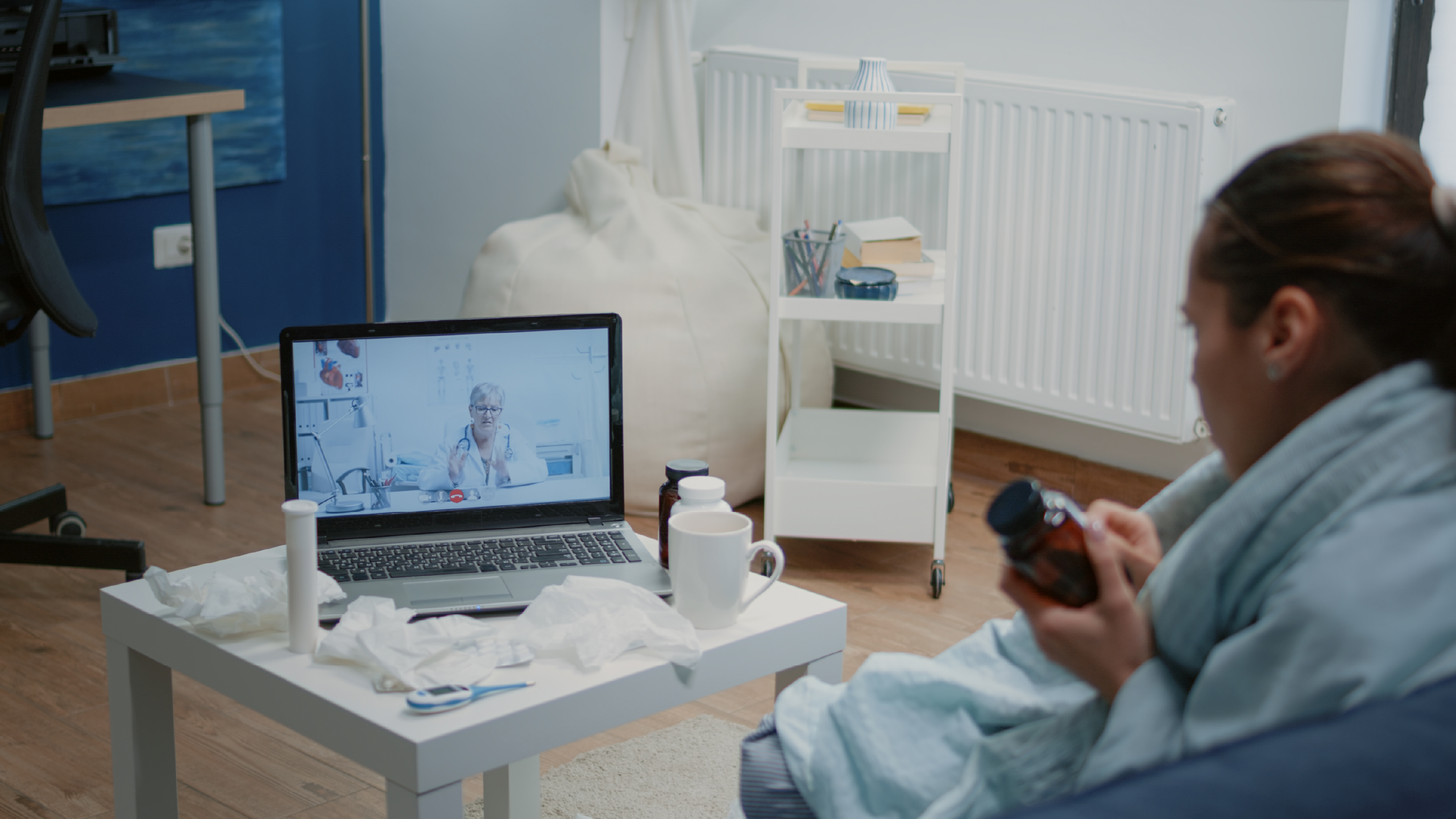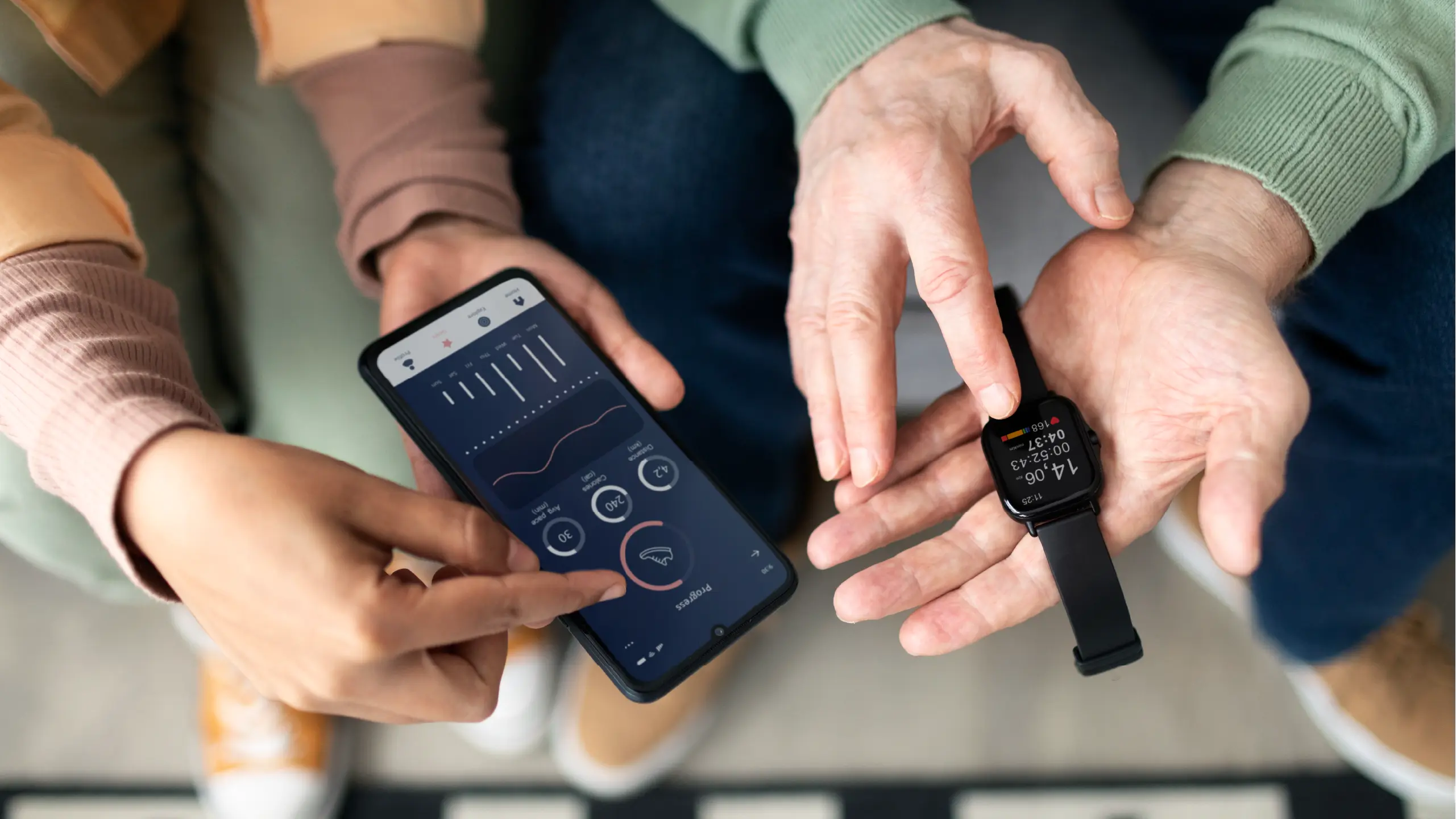
Virtual Trials & Remote Monitoring: The Future of Clinical Research?
Welcome to the (Clinical) Future
What do clinical trials and your favorite binge-worthy OTT series have in common?
They’ve both gone digital, decentralized, and disturbingly convenient.
Gone are the days when clinical research meant corralling volunteers into sterile hospital rooms, handing out paperwork like candy, and praying everyone remembered to show up on time. In 2025, the star of the show is virtual clinical trials, and let’s just say – the traditional clipboard has been replaced by cloud-based dashboards and wearable tech.
Yes, you heard right. Clinical research has finally had its Silicon Valley glow-up.
And at Blackwater – your friendly neighborhood market research agency – we’ve been tracking every twist and turn in this digital transformation. If you’re wondering whether the rise of remote clinical trial monitoring and decentralized clinical trials (DCT) is a passing trend or the blueprint for the future, buckle up. This is your all-access pass to what’s reshaping medical research as we know it.
The Evolution of Clinical Trials (Or Why the Lab Coat Just Went Virtual)
To understand the rise of virtual clinical trials, let’s take a moment to remember their analog ancestors. Traditional trials were localized, slow, expensive, and logistically… well, a bit of a mess.
Participants had to travel (often long distances), researchers had to be physically present, and data collection felt more like chasing butterflies with a net than capturing real-time results. And let’s not even talk about the paperwork.
Enter: technology.
When the pandemic rudely forced the clinical research world into quarantine, the industry had a choice: pause progress or pivot smartly. Spoiler alert: they pivoted. Hard.
The concept of decentralized clinical trials (DCT), where parts (or all) of a trial are conducted remotely using digital tools, had existed on the fringes. But COVID-19 gave it the mainstream makeover it needed. Suddenly, things like digital clinical research solutions, remote monitoring, eConsent, telemedicine, and wearable health tech weren’t just buzzwords—they were survival tactics.
Now? They’re SOPs (Standard Operating Procedures).
What Exactly Are Virtual Clinical Trials?

Think of virtual clinical trials as Netflix for the clinical research world. You don’t need to go anywhere. The trial comes to you—through apps, sensors, secure video calls, and dashboards that make Excel look like a Neanderthal’s notebook.
Participants are recruited, onboarded, monitored, and followed up with remotely. Data collection is done through digital devices and cloud platforms. Investigators and sponsors get real-time access to insights. And compliance? It’s better than ever.
No commutes. No waiting rooms. No lost data sheets.
Just you, your device, and a streamlined trial experience that would make even a German engineer weep tears of joy.
Remote Clinical Trial Monitoring: Big Brother, But Make It Ethical
Let’s be honest—when we say remote clinical trial monitoring, it does sound like something somebody would warn us about. But in practice, it’s not surveillance—it’s salvation.
Remote monitoring allows researchers to track participant data from afar using secure digital platforms. It enhances protocol adherence, data accuracy, and most importantly, participant safety. Alerts can be set for any health anomaly, allowing for real-time interventions.
For example, a wearable ECG monitor can detect cardiac irregularities during a cardiovascular drug trial and immediately ping the study coordinator. That’s not just efficient—it’s life-saving.
And for sponsors and CROs (Clinical Research Organizations), remote monitoring means no more hopping on planes to conduct site visits. Instead, it’s a few clicks, a dashboard view, and a digital cup of coffee.
Blackwater’s latest market research on remote clinical trial monitoring shows a 38% increase in CROs adopting hybrid or fully remote monitoring models post-2021. Efficiency, scalability, and cost savings? Triple check.
The Participant’s Perspective: Less Hassle, More Healing

Imagine being a working parent with a chronic condition, asked to participate in a clinical trial. Would you choose the one requiring three clinic visits per week or the one where you self-report symptoms via app and receive medications at your doorstep?
Exactly.
Decentralized clinical trials (DCT) put the patient back at the center. They improve recruitment, reduce dropout rates, and make trials accessible to a broader demographic—especially those from rural or underserved areas.
Blackwater’s 2024 study on participant retention in virtual trials found that trials leveraging mobile health tech and remote communication saw a 60% improvement in completion rates compared to traditional models. That’s not just better data—it’s better humanity.
Data, Data, Everywhere (But Not a Byte to Misplace)
You’d think going digital would come with serious data headaches. In reality, digital clinical research solutions have made data management smarter, not scarier.
Real-time integration across systems means researchers can access patient data as it’s generated—no delays, no manual transcription errors, no binders stacked to the ceiling. AI-powered platforms help clean, validate, and analyze data faster than you can say “double-blind placebo-controlled.”
Platforms like Medidata, Castor, and even smaller AI-powered startups have redefined how data is handled. And the cherry on top? All that data isn’t just stored—it’s used for predictive insights, adaptive trial designs, and even regulatory submissions.
Blackwater’s market analysis shows a 47% YoY increase in investment towards AI-integrated digital platforms in clinical trials between 2023 and 2025. In short, the clinical lab is no longer just physical—it’s algorithmic.
Regulatory Realities: Still Playing Catch-Up?

Of course, all this innovation comes with one persistent sidekick: regulation.
Regulatory agencies like the FDA and EMA have made major strides in supporting virtual clinical trials. Guidance documents, remote audit protocols, and digital consent frameworks are now on the books. But let’s not pretend there aren’t speed bumps.
Data privacy, cybersecurity, standardization of digital tools, and cross-border trial governance are still in flux. And let’s face it—navigating these waters isn’t for the faint of heart.
That’s where Blackwater steps in.
Our regulatory intelligence reports provide clients with up-to-date insights into evolving DCT frameworks across geographies. Whether you’re launching a Phase I oncology trial in Boston or a Phase III vaccine trial in Bengaluru, we’ve got the data to help you steer clear of regulatory potholes.
Pharma, Meet UX Design
It’s not just about tech. It’s about experience.
For virtual trials to truly work, the platforms must be user-friendly—not just for patients, but for clinicians, data managers, and regulators.
Blackwater’s 2025 usability survey revealed that over 72% of trial dropouts in app-based studies were due to clunky interfaces and lack of tech support. So while the science is solid, the UX needs to be smoother than a jazz playlist in a sensory deprivation tank.
That’s why Blackwater now includes user experience audits as part of our clinical research consulting services—because what good is a digital trial if nobody knows how to use the interface?
The Hybrid Model: The Best of Both Trials
While fully virtual trials grab headlines, the reality for most pharma and biotech companies is somewhere in between. Welcome to the age of hybrid trials.
Here, critical assessments like MRIs or biopsies still happen on-site, but routine check-ins, ePRO (electronic patient-reported outcomes), and follow-ups are done remotely.
This blended approach offers flexibility, scalability, and the ability to tailor protocols for different patient populations and therapeutic areas.
According to Blackwater’s upcoming 2025 trend forecast, hybrid trials will make up 68% of all new clinical trial designs over the next five years. It’s not about choosing between old and new—it’s about combining the best of both.
The Challenges No One Talks About (But We Will)
Sure, virtual trials sound like a utopia, but let’s not gloss over the challenges.
Tech literacy, device access, digital fatigue, data overload, internet inequality—these are real issues. Not every patient owns a smartphone or lives near stable Wi-Fi. Not every country has digital regulations on par with the EU or US.
And let’s not forget human error. Automated doesn’t mean infallible. Even an AI can misinterpret a signal or flag a false positive.
That’s why strategy matters. And that’s exactly what Blackwater brings to the table—customized market research, digital feasibility studies, and predictive analytics to ensure that your next virtual trial isn’t just high-tech, but high-success.
So… Is This The Future?

Let’s call it what it is: not just the future, but the now.
Virtual clinical trials and remote clinical trial monitoring are no longer experiments. They are expectations. From AI-assisted data collection to GPS-tracked medication adherence, clinical research has been rebooted for the digital age.
Whether it’s increasing patient diversity, reducing trial timelines, or minimizing operational costs, decentralized clinical trials (DCT) are redefining ROI, ethics, and efficacy. And in the middle of it all? Blackwater—turning raw data into razor-sharp decisions.
Final Dose
The clinical research world has gone remote. Your trials should too.
From virtual clinical trials and decentralized setups to smart dashboards and global reach, the path is clear: go digital, or go extinct.
And if you’re still unsure where to start, Blackwater’s market intelligence, user insights, and regulatory forecasting are your not-so-secret weapon. We’ve done the homework so your trials don’t become trial-and-error.
Ready to revolutionize your next clinical trial?
Talk to Blackwater. We’ll make sure your digital leap doesn’t turn into a digital faceplant.



